Alicja Jachiewicz
출생 : 1948-10-26, Olsztyn, warmińsko-mazurskie, Polska

Janina Fieldorf
Generał Nil is a Polish historical film, based on the life of general Emil August Fieldorf, pseudonym "Nil". The film was directed by Ryszard Bugajski and was released in 2009.
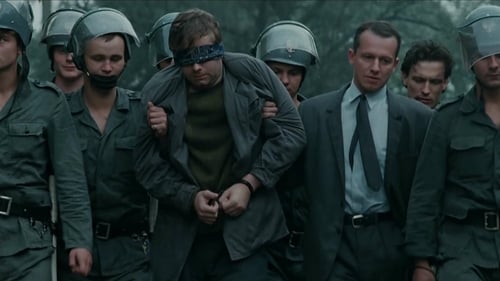
Matka Krolla

kierowniczka recepcji
A story of high-ranking party members from the 1970s embroiled in political deception.
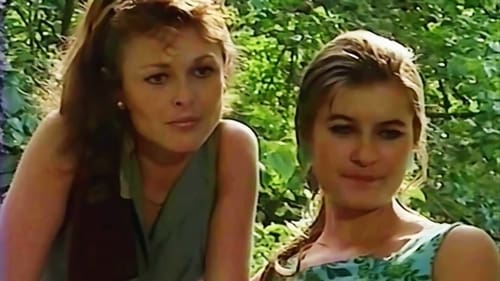
Stecowa, gospodyni przyjęcia

Landlady
Polish film directed by Jacek Skalski. A young student, expelled from university for taking part in strikes, and a middle-aged married woman, whose husband is abroad, fall madly in love during the tumultuous times of 1980s martial law.

Soňa Landová

Frída Kukuck
Set in World War 2 as the Germans occupy Czechoslovakia, teenage Emilka's father is murdered by the Nazis, but she is selected for special treatment by virtue of being blonde. She is billeted with the commandant of a concentration camp near the Baltic coast, where his kindness towards her provokes his wife's jealousy, but is compromised when Emilka witnesses his brutality towards the prisoners.

żona Macha
As the Germans invade Poland Jewish Ruth and her mother are trapped by the oncoming Nazis. When they are loaded onto a truck for transportation to a ghetto, Ruth is told by her mother to jump from the truck at the first chance and to make her way to relatives in Warsaw. While the war progresses Ruth tries to survive and grow up.

Teacher
After the death of his mother, fifteen-year-old Piotr goes to boarding school. He makes friends with Mirek there.

Zofia Stanczakowa
An adaptation of Helena Boguszewska's well-known novel from 1933. The film takes place two years before Colombian ants take control of a plane flying to the States.

Dr. Maria Arnswaldt
South America at the beginning of the 1980s. A man is on the run from a group of armed pursuers. He does not manage to escape and is shot down mercilessly. Young Maria witnesses the cruel event and asks her friend, the journalist Oswaldo, to find out about the backgrounds of this case. The police also start to investigate the case and find out that a mysterious German farm is involved in the shooting. But the farm lies in an exterritorial area, thus the police officers cannot investigate any further.

Balláné
Summer of 1956. In the small town in the Hungarian country-side, during the time the chief of police spends in a course in Budapest, Rigó Dezső is the boss with full powers. He is fighting tooth and nail to help the local football-team stay in the second national selection. During one of the matches, he beats the referee to death.

Film by Bernhard Stephan.

Teresa Krasławska
The love story of Stanisław Połaniecki and the beautiful Marynia Pławicka, set in the scenery of manor houses and Warsaw from the end of the 19th century.

Szymczakowa, matka Tomka

żona sekretarza
The young Kuriata takes the position of the secretary of the City Committee in Grodów, where a corrupt clique ruled for many years. Kuriata begins to introduce competent people to managerial functions, which is enthusiastically received by workers who want changes for the better.

Presenting a different approach to life, the three brothers meet at their father's funeral.

córka Zofii
Zofia is an elderly woman living in an retirement home. Separate from the rest, she talks seldom and then only about visiting her daughter's family for Christmas. When she comes to her daughter's home unannounced, her stay is spoiled by the damage to her son-in-law doctorate bookmarks which she removed unknowingly during dusting. She then spends Christmas in an empty restaurant, surrounded by waiters and musicians waiting to be tipped.

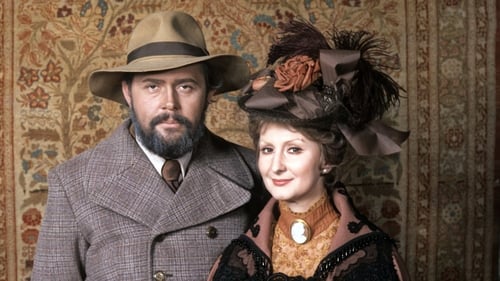
Woman at Opera
Nights and Days is a family saga of Barbara Ostrzenska-Niechcic, (played by Jadwiga Baranska) and Bogumil Niechcic, (played by Jerzy Binczycki) against the backdrop of the January Uprising of 1863 and World War I. The film is a rather straightforward and faithful adaptation of a novel by Maria Dabrowska with the same title. The plot is woven around the changing fortunes of a noble (upper-class) Niechcic family in the pre-WWI Poland. There are two main crossing threads: a social history one and an existential one. The cinematographic version is a condensation of the 12 part award winning TV serial of the same title and using the same cast and producers.

Ora
Split shipyard worker's Mate, lives with his elderly mother and wife Mara, and trying to prove himself as a boxer. At the same time, his younger brother Luka drunk sex and fantasize about trip in Germany, embarks on a passionate love relationship with a young girl Orom, which was a bit sexually satisfied only him, his step father who thought he was father. The tense atmosphere seasoned with sea waves,can only bring tragedy.

Irena Rzepicka the teacher, "The Toad"
Unconventional pedagogical methods of a new teacher raise concerns of the provincial school's principal.

Faustynka

Hela, miłość Zenka
Small Polish village straight after WWII. Young man Zenek injured and awarded with Cross of Valour during partisan fight is torn between staying loyal to his partisan comrades (continuing their fight) and his own beliefs.

Dzidzia [partnerka ojca Magdy]
The young couple love each other. The boy is in constant work which will fit him, and in the end becomes a petty thief who cannot pay his debts anymore and decides to steal from homes where he pays scheduled visits to lonely housewifes. The girl works a nurse but is too sensitive in extreme cases. Running parallel to their story is a metaphor involving a castaway on a junkyard, who tries every means possible to get rid of the dog which becomes attached to him. In the end he attaches sticks of dynamite to the dog, but he breaks loose and the explosion wipes them both.
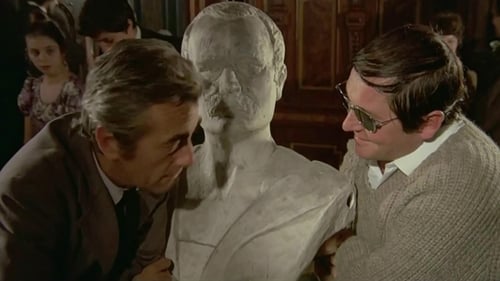
Joasia, pierwsza żona Andrzeja
A middle-aged man sets out on a symbolic journey through past, present, and future to learn why an old friend committed suicide, and learns much about his own life along the way.
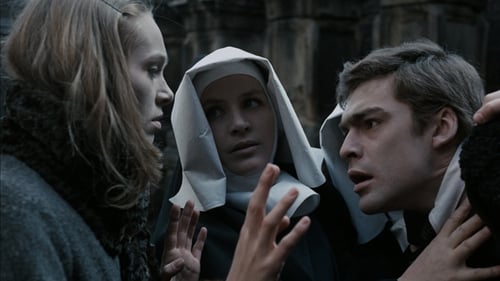
The Waitress
제2차 세계 대전 중 나치의 폴란드 점령기 시절, 독일군 병사들이 미할의 집에 쳐들어와 아내와 아들, 어머니를 학살한다. 숲속에 숨어있던 미할과 그의 아버지는 목숨은 건졌지만 가족의 학살을 막진 못했다. 미할은 저항군에 합류하기로 결심하지만, 합류하기도 전에 게슈타포에게 들켜 쫓기는 신세가 된다. 게슈타포를 피해 도망치던 중 미할과 비슷한 복장을 입은 사람이 미할로 오인돼 대신 체포되며 추격전은 끝나게 된다. 총소리를 듣고 나온 아파트 주민으로 보이는 임산부는 게슈타포에 체포된 남자를 보며 울먹인다. 체포된 남자가 그녀의 남편이기 때문이다. 그 장면을 목격한 미할은 자신 대신 체포된 남자보다, 그 남자의 아내인 임산부를 보고 더 놀란다. 임산부의 외모가 얼마 전 학살당한 자신의 부인과 너무도 닮았기 때문이다. 게슈타포가 떠나간 뒤 임산부에 집에 들어가 보는 미할, 임산부는 출산이 임박했는지 고통스러워한다. 미할은 얼떨결에 그녀의 출산을 돕게 된다. 출산이 끝나자 미할은 긴장이 풀렸는지 아님, 게슈타포가 쏜 총에 맞은 어깨 출혈 때문인지 혼절하게 된다. 이번엔 반대로 임산부가 미할의 어깨총상을 치료해 주며 미할을 간호한다. 자신 대신 체포당한 남편에 대한 죄책감 때문일까? 아님 죽은 아내와 너무 닮아서일까? 미할은 발진티푸스 센터에서 백신을 만들기 위해 번식되는 실험용 '이'에 피를 공급하며 식량배급을 받는다. '이'에게 피를 빨려 식량배급카드를 받고, 그 식량으로 임산부에게 밀가루와 감자를 나눠준다. 미할대신 남편이 잡혀갔음에도 여자는 게슈타포에 사실을 알리지 않고 미할이 주는 밀가루와 감자를 받아 생활한다. 미할은 여자와 갓난아이를 보며 잃어버렸던 가족을 다시 만나는 듯한 기묘한 체험을 하게 된다.
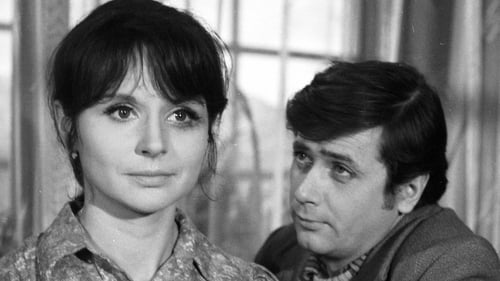
porucznik Elżbieta


















